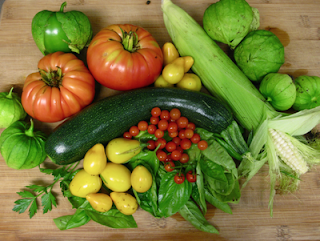In August, N and I went to Belize and Guatemala. Well, first we went to California for my Grandma's 90th birthday party, which was awesome. My family is full of so many great people, whom I got to hang out and catch up with, but
Grandma especially is a hero of mine (that's a water gun at a wedding, gracias a
Rachael).

Anyway, so we flew out from California after the fam-tastic party. Immediately after we got off the plane, we got in a taxi (which was some guy's old van with a tag hanging from the rearview mirror), and then to the bus station, where we boarded a minute after we got there and a minute before it left. It was as if everything had been planned to the T, but really there was absolutely no scheduling involved. Bussed inland to San Ignacio.
The next day, we went to
Actun Tunichil Muknal, which is an incredible cave. To get inside, you have to swim through water with
skin-nibbling fish, then it's 3 miles alternating between swimming, squeezing through narrow passages, and ogling at huge crystal-covered caverns. Then there are ceramic artifacts and mayan skeletons. You have to go barefoot for the very back part, where a cave-crystal covered skeleton called the "crystal maiden" resides.

Then it was off to Guatemala the next day to see
Tikal. All the while we had been seeing interesting birds and other critters, but Tikal had an excellent assortment, including a toucan! There were also some huge trees, crazy mushrooms, and brightly colored insects that flew a little to close to my face for comfort. These things, however, is not what Tikal is known for. No, Tikal is one of the largest archeological sites of the Mayan civilization. There were dozens of structures we were allowed to climb, a handful of hugely scary ones we were not, and a plaza with a bunch of school children playing like it was central park. When we were there, a thunderstorm rolled in, putting on quite a display as the backdrop of these ancient temples, making my mysticism-loving self very happy. We also got very wet.
Tikal was used as a filming site in Star Wars IV--this is the famous angle.
After Tikal, we stayed at Flores, a touristy island in the middle of a lake. There, I had my first experience with a tuk-tuk, which I insisted were really just three-wheeled lawn-mowers without the cutting blades. The next day we made it down to
Finca Ixobel, where we went horseback riding up in the mountains, and lounged in hammocks.
The finca has a really interesting history involving drug wars, American spies for the CIA, and gunning down the owner at the entrance to the finca. We talked to the horseback riding guide, who was only a kid when it all happened, but it was a crazy story with the moral that places like this in Central America are really safe, but are struggling financially because of the drug war reputation. Before and after the trip, everyone was asking about how safe it was, which felt strange to me. I felt more safe in Guatemala than I did in Greece, and no one asked about my safety for that trip.
After our time at the finca, we took a bus down to Rio Dulce, where we got on a boat ride to Livingston, the only moderately sketchy place in our journey. The boat ride was stunning, as we rode through a gorge with crazy amounts of green on each side. It was obviously intended for tourists, though, as the boat driver stopped at all the right places to let us get pictures.
Livingston was a dump. We were harangued by Belizians as soon as we got off the boat--Livingston is still in Guatemala, but it's a common stop on the way to Belize. Not wanting to stay the night, we got something to eat, got the immigration paperwork taken care of (also very sketch), and waited for our boat.
When we got on the boat, we went south for one more stop in Guatemala before heading to Belize. The boat driver told us what time to be back at the boat while he went off for a bit. So we waited. And waited. And waited. About an hour after he was supposed to be back, the two kids who helped with the boat starting getting antsy--there would be a fine for getting into port after curfew.
One of the ministers for Livingston was in our boat, and N chatted with him about tourism. We speculated about the driver having a girlfriend, watching the soccer game that was on in the bar next door, etc. When he finally got back, he explained that he had been trying to sell his chicken frier. N turned to the minister and said, "If you really want to improve tourism, don't let things like this happen."
The driver then proceeded to take our tiny little speed boat and take the shortest path possible to Belize, cutting through open water with a thunderstorm on our tail. It was like Disneyland, with bigger and more frequent drops than the Indiana Jones ride. But for a half-hour straight and no seat-belts. Our rumps were really sore afterward.
We spent the night at Punta Gorda, and took a bus back up to Belize City, were we caught a water taxi out to Caye Caulker, the most beach-bummy place I've ever been. There, we loafed about the white-sand beaches, ate very fresh fish, and made friends with some crabs.
We spent a day snorkeling, seeing a sea turtle, a moray eel, a barracuda, a spotted eagle ray, and petting small sharks and rays at (unsuprisingly) "Shark Ray Alley." There was one dude who grabbed a shark for a photo, which was appalling. On the other end of the spectrum, a woman from New Zealnd didn't touch the animals out of respect, which I found admirable.
It was beautiful and exciting, but when the time came, we were both ready to go home.































